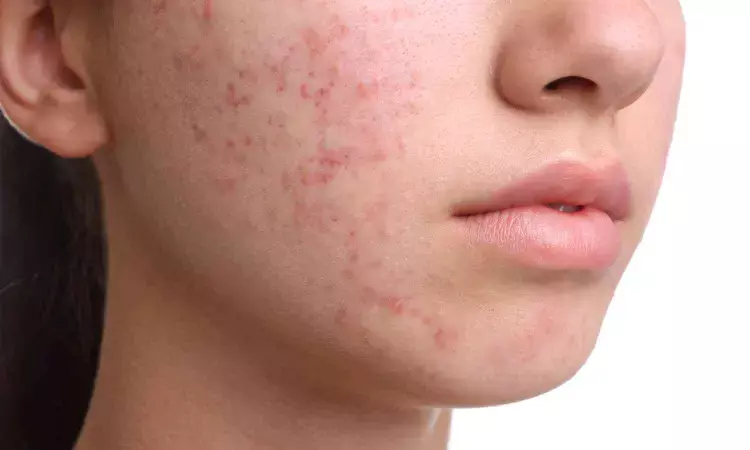- Home
- Medical news & Guidelines
- Anesthesiology
- Cardiology and CTVS
- Critical Care
- Dentistry
- Dermatology
- Diabetes and Endocrinology
- ENT
- Gastroenterology
- Medicine
- Nephrology
- Neurology
- Obstretics-Gynaecology
- Oncology
- Ophthalmology
- Orthopaedics
- Pediatrics-Neonatology
- Psychiatry
- Pulmonology
- Radiology
- Surgery
- Urology
- Laboratory Medicine
- Diet
- Nursing
- Paramedical
- Physiotherapy
- Health news
- Fact Check
- Bone Health Fact Check
- Brain Health Fact Check
- Cancer Related Fact Check
- Child Care Fact Check
- Dental and oral health fact check
- Diabetes and metabolic health fact check
- Diet and Nutrition Fact Check
- Eye and ENT Care Fact Check
- Fitness fact check
- Gut health fact check
- Heart health fact check
- Kidney health fact check
- Medical education fact check
- Men's health fact check
- Respiratory fact check
- Skin and hair care fact check
- Vaccine and Immunization fact check
- Women's health fact check
- AYUSH
- State News
- Andaman and Nicobar Islands
- Andhra Pradesh
- Arunachal Pradesh
- Assam
- Bihar
- Chandigarh
- Chattisgarh
- Dadra and Nagar Haveli
- Daman and Diu
- Delhi
- Goa
- Gujarat
- Haryana
- Himachal Pradesh
- Jammu & Kashmir
- Jharkhand
- Karnataka
- Kerala
- Ladakh
- Lakshadweep
- Madhya Pradesh
- Maharashtra
- Manipur
- Meghalaya
- Mizoram
- Nagaland
- Odisha
- Puducherry
- Punjab
- Rajasthan
- Sikkim
- Tamil Nadu
- Telangana
- Tripura
- Uttar Pradesh
- Uttrakhand
- West Bengal
- Medical Education
- Industry
Higher Cumulative Isotretinoin Dosages Linked to Lower Acne Relapse Rates, Study Finds

USA: A recent cohort study published in JAMA Dermatology has shed light on the potential benefits of optimizing isotretinoin treatment to reduce the likelihood of acne relapse and the need for retreatment. Acne, a common and often distressing condition has long posed challenges for patients and dermatologists, especially in maintaining long-term remission.
The study analyzed the outcomes of patients undergoing isotretinoin therapy. It revealed that a higher cumulative dose during treatment could significantly lower the risk of acne recurrence and the necessity for a retrial of the medication. The study also highlighted that the daily dose did not influence the risk of outcomes for those receiving conventional or high cumulative dosages, allowing daily dosing to be tailored to align with patient goals and preferences.
Isotretinoin is a unique medical treatment for acne, capable of achieving long-term remission. However, some patients experience a recurrence of acne after treatment and may require a retrial of the medication. Understanding the factors that contribute to this relapse and the role of daily dose and cumulative dosage in influencing outcomes is essential to improve treatment strategies.
To address these concerns, Jenny Lai, Harvard Medical School, Boston, Massachusetts, and colleagues aimed to evaluate the rates of acne relapse and isotretinoin retrial among patients who completed a course of isotretinoin. The study also sought to identify factors associated with these outcomes, providing insights into how treatment can be optimized to minimize the risk of relapse and enhance long-term effectiveness.
For this purpose, the researchers conducted a cohort study using data from the MarketScan commercial claims database between 2017 and 2020. The study included patients aged 12 years or older who had acne and received isotretinoin treatment for at least four months, with a minimum of one year of continuous enrollment in the database after completing the treatment.
The researchers applied multivariable Cox proportional hazards regression to assess the factors influencing acne relapse and the need for isotretinoin retrial. This approach enabled them to examine the associations between patient demographics, treatment characteristics, and the likelihood of these outcomes.
The following were the key findings of the study:
- The study included 19,907 patients with a mean age of 20.6 years, of whom 52.8% were female.
- Among the participants, 22.5% experienced acne relapse, and 8.2% required isotretinoin retrial.
- Female sex was significantly associated with a higher rate of acne relapse (hazard ratio [HR], 1.43).
- A higher isotretinoin cumulative dosage (mg/kg) was associated with a reduced rate of acne relapse (HR, 0.996).
- Daily isotretinoin dose was not linked to a lower risk of acne relapse or retrial among patients receiving conventional or high cumulative dosages.
- Female sex was associated with a lower likelihood of isotretinoin retrial (HR, 0.68).
- Higher isotretinoin cumulative dosage was associated with reduced retrial rates (HR, 0.99).
- Stratification by cumulative dosage revealed that increased cumulative dosage reduced retrial rates in patients receiving low (<120 mg/kg) and conventional (120-220 mg/kg) dosages but not in those receiving high cumulative dosages (>220 mg/kg).
- Maximum daily isotretinoin dose (mg/kg/d) was not negatively associated with acne relapse or retrial in patients with a cumulative dosage of 120 mg/kg or more.
"This extensive cohort study highlighted key factors linked to acne relapse and the need for isotretinoin retrial, offering valuable insights to inform treatment decisions and improve patient outcomes. Additional research is essential to develop effective strategies for preventing acne relapse in high-risk individuals," the researchers concluded.
Reference:
Lai J, Barbieri JS. Acne Relapse and Isotretinoin Retrial in Patients With Acne. JAMA Dermatol. Published online January 15, 2025. doi:10.1001/jamadermatol.2024.5416
Dr Kamal Kant Kohli-MBBS, DTCD- a chest specialist with more than 30 years of practice and a flair for writing clinical articles, Dr Kamal Kant Kohli joined Medical Dialogues as a Chief Editor of Medical News. Besides writing articles, as an editor, he proofreads and verifies all the medical content published on Medical Dialogues including those coming from journals, studies,medical conferences,guidelines etc. Email: drkohli@medicaldialogues.in. Contact no. 011-43720751


